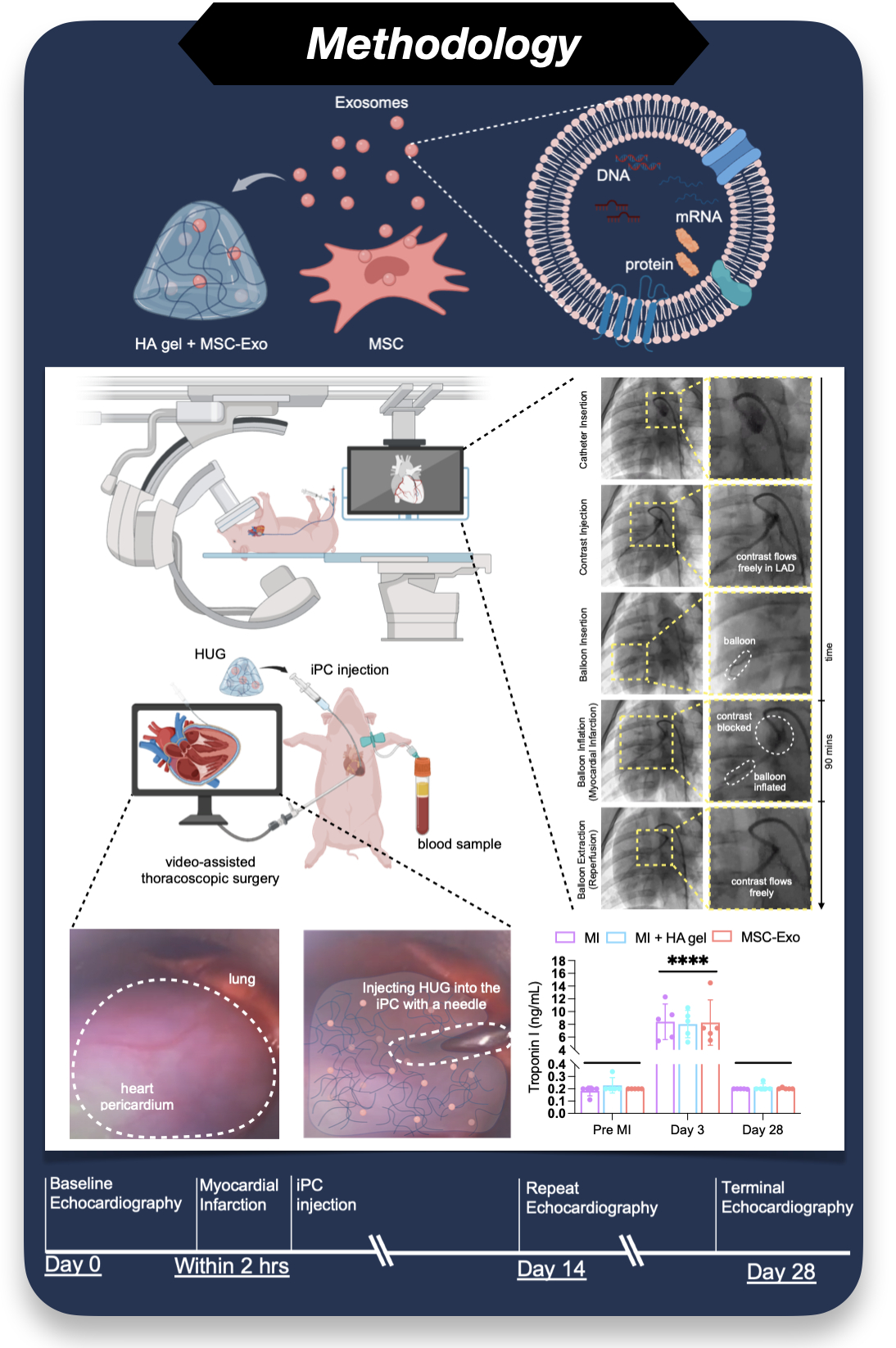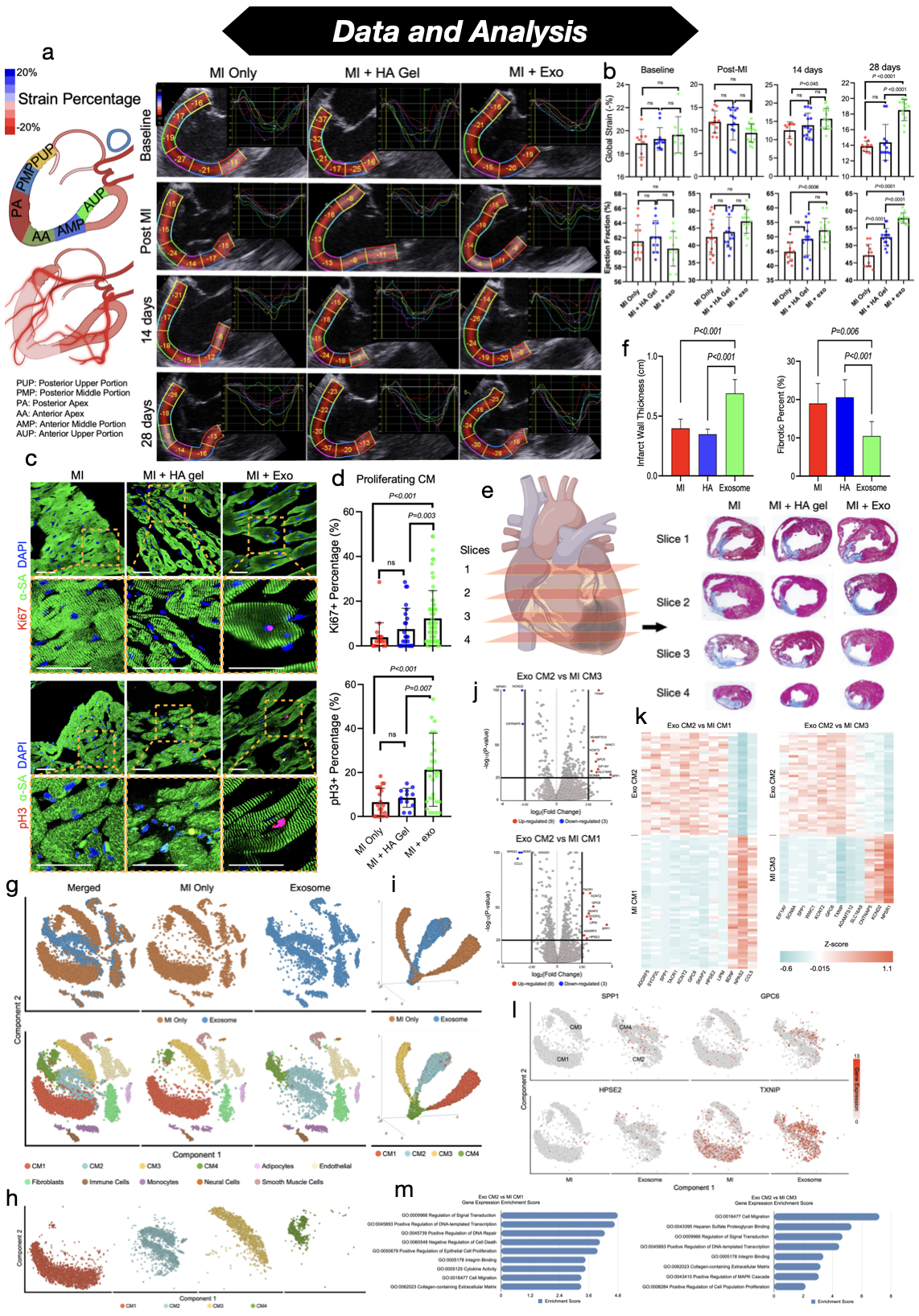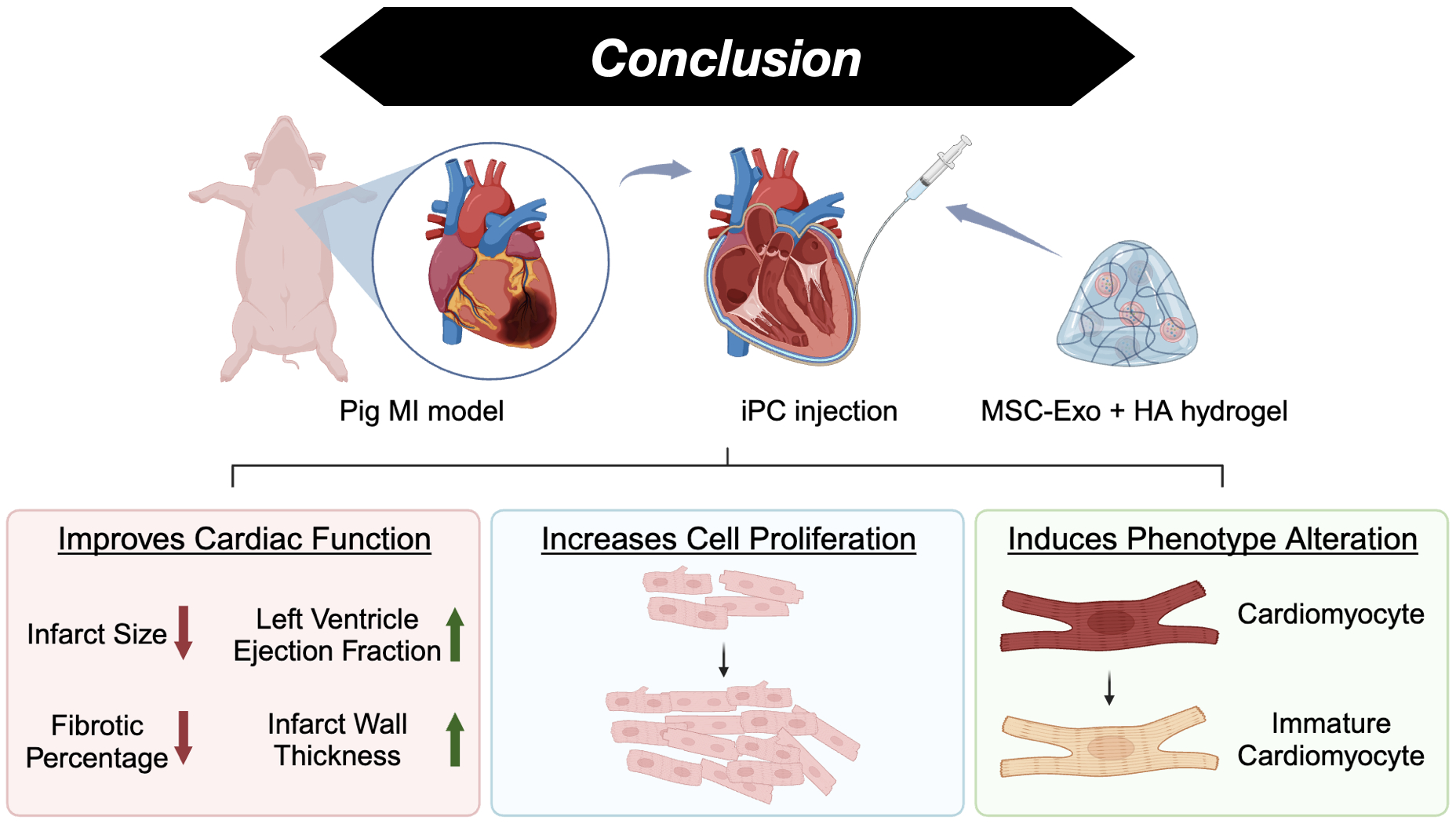Final ID: Mo044
Minimally Invasive Delivery of Mesenchymal Stem Cell-derived Exosomes Improves Heart Repair in Pigs
Abstract Body: Myocardial infarction (MI) is one of the primary manifestations of cardiovascular events. Human mesenchymal stem cell-derived exosomes (hMSC-Exo) were shown to promote cardiac repair after MI. To harness the therapeutic effect, prolong the therapeutic window, and achieve minimally invasive delivery, hMSC-Exo was embedded in hyaluronic acid (HA) hydrogel. The intrapericardial cavity (iPC) is a natural “pocket” surrounding the myocardium. Clinically, iPC procedures were used to treat heart diseases, which could make iPC injection a viable route for drug delivery. In addition, porcine models were highly relevant for pre-clinical studies due to their physiological and anatomical similarities to human patients. Therefore, we hypothesized that minimally invasive delivery of MSC-Exo in HA gel via iPC injection in a porcine MI model could improve pig cardiac function and cardiomyocyte (CM) proliferation. Here, a pig MI model was created using percutaneous coronary balloon catheter occlusion with C-arm fluoroscopy. Yorkshire pigs underwent video-assisted thoracoscopic surgery for iPC injection of MSC-Exo. Cardiac function studies were conducted using echocardiography (echo) to measure left ventricle ejection fraction (LVEF) and left ventricle fractional shortening (LVFS). Histology and immunohistochemistry (IHC) analyses were performed to investigate CM proliferation. Single nucleus RNA-sequencing (snRNA-sq) analysis was performed to identify key gene features and phenotype changes that may be affected by the MSC-Exo treatment. As a result, the iPC injection of MSC-Exo improved cardiac function, enhanced cardiomyocyte proliferation, and induced phenotype alteration in the pig MI model. Echo depicted significantly enhanced LVEF and LVFS on Day 28 in the MSC-Exo group. Histology showed reduced fibrotic percentage and improved infarct wall thickness. IHC analysis showed a significant increase in CM proliferation. SnRNA-seq gene and pathway enrichment elucidated upregulated CM gene features involved in cell proliferation and ECM interaction. In conclusion, these results demonstrated significant improvements in pig cardiac function and CM proliferation. Interestingly, immature cardiomyocytes of a different phenotype emerged in the MSC-Exo group. These findings provide an unprecedented dataset to facilitate the clinical translation of minimally invasive cardiac repair therapeutics.
More abstracts on this topic:
A Two-Hit HFpEF-like Mouse Model with Accelerated Disease Onset
Nehra Sarita, Selvam Sabariya, Anand Amit, Luettgen Joseph, Gulia Jyoti, Dokania Manoj, Gupta Ankit, Garcia Ricardo, Dudhgaonkar Shailesh, Mazumder Tagore Debarati, Ck Neethu, Wagh Somnath, Kale Prajakta
An ADPKD-Associated Pathway in Cardiac Homeostasis, Heart Failure, and Cardiovascular-kidney-metabolicLiu Chia-feng, Leon Steven, Wessely Oliver, Tang Wai Hong



